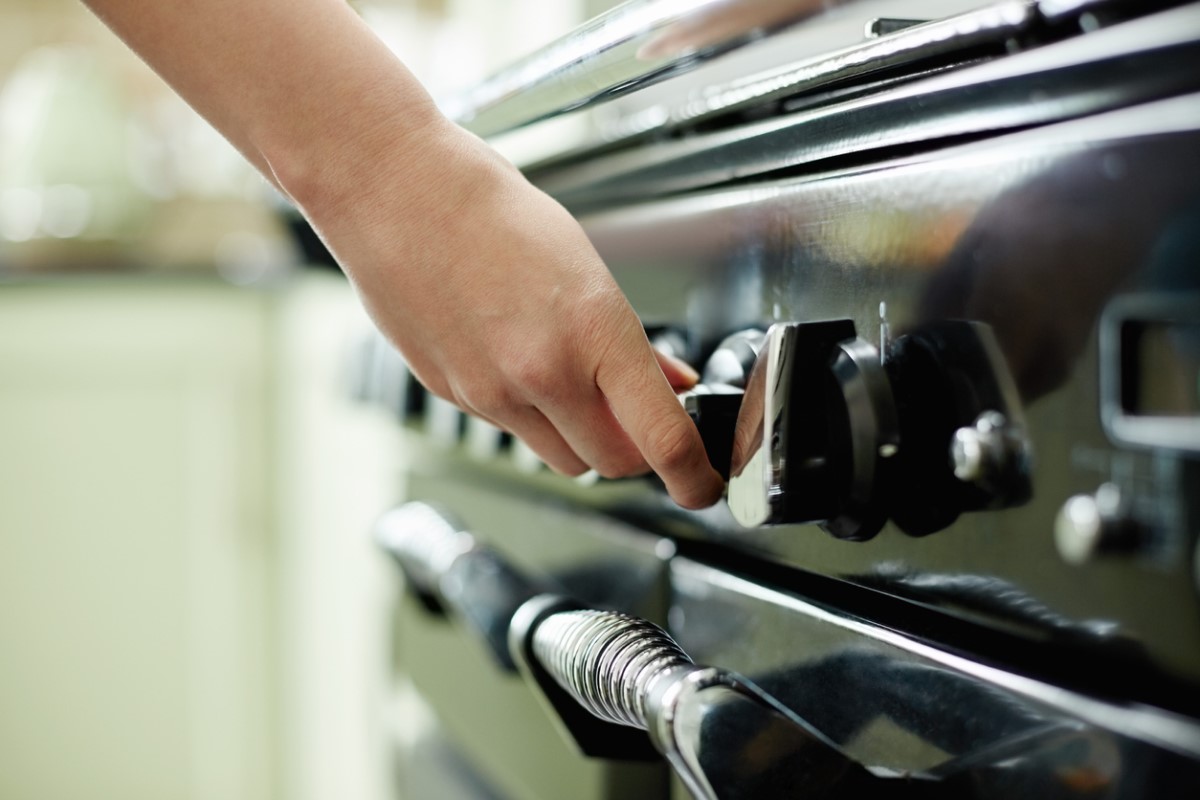We may earn revenue from the products available on this page and participate in affiliate programs. Learn More ›
Stop for a moment and consider the number of appliances in the home that run on gas. These days, many stoves, furnaces, and water heaters operate smoothly and safely on propane or natural gas. But the possibility of a gas leak is always there, posing a potential health risk to humans and a fire risk to the property. Moreover, when natural gas and propane burn, they emit additional toxic gases that can pose health risks if leaked into your home.
Homeowners are usually instructed to report suspected leaks immediately and leave remedies to professionals who are trained to find the source of a leak and fix it. Detecting a leak quickly, correctly, and safely starts with the right tools, so we sought out expert advice from Krystal Remington, a product support technician for online plumbing retailer SupplyHouse.com. Read on to learn how to detect a gas leak and protect your home and loved ones from harm with just a handful of pro-rated tools.
Safety first.
Inhaling natural gas can trigger physical symptoms, including headache, nausea, and chest pain, but the biggest risk from an indoor natural gas or propane leak is explosion and fire. “Natural gas is completely odorless,” Remington says, “so, as a safety precaution, mercaptan, a sulfur-containing compound, is added so that a smell can be detected if there is a leak.” That’s why the natural gas and propane used in your house smell like rotten eggs.
Homeowners who catch a whiff of sulfur or rotten eggs should leave the house immediately and, once outside, call both the fire department and the utility company. These professionals will check the house for leaks and determine when it’s safe to reenter.

Pinpoint a gas appliance’s leak with a spray.
Because natural gas and propane leaks are so dangerous, only trained professionals who work with the utility company should attempt to pinpoint their location. For these professionals, determining where the leak is coming from “can easily be done with a detection solvent,” Remington says. Nu-Calgon Fluorescent Gas Leak Detector (available from SupplyHouse) works on a simple principle: When the brightly colored liquid is sprayed on a pipe or fitting that’s leaking, bubbles immediately appear. With a detection liquid, even tiny leaks are simple to pinpoint.

Set up a carbon monoxide detector to monitor for the silent killer.
When oil, wood, natural gas, and other types of fuel burn, they create carbon monoxide (CO), a highly toxic gas that is invisible and odorless. All gas-powered appliances, such as stoves and furnaces, must be vented in order to safely remove CO from the home. If a chimney or vent becomes blocked, CO can leak into the home and silently poison the residents, leaving them feeling weak, sleepy, and nauseous. Inhaling it can eventually lead to death, so “a CO detector is critical for letting the homeowner know if there is any CO gas present,” Remington says. She advises all homeowners to install a CO detector, such as the Kidde Carbon Monoxide Alarm (available from SupplyHouse), in every sleeping area and on every level of the home. The detectors will emit a loud alarm at the first sign of CO gas, alerting the residents to get out of the house.

Locate refrigerant gas leaks.
Refrigerant gases, such as Freon, are found in many household appliances, including water coolers, air conditioners, and freezers. When one of these appliances stops cooling, there’s a chance that refrigerant could be leaking out. “All measures should be taken to avoid direct contact or the inhalation of Freon gas, as it is toxic to the body and can lead to serious health symptoms,” Remington warns.
Many states prohibit nonprofessionals from working directly with refrigerant—for instance, draining the gas from an appliance, or adding additional gas—but even homeowners can benefit from the ability to detect a refrigerant leak. A detector such as the Informant 2 Refrigerant & Combustible Gas Leak Detector (available from SupplyHouse) will alert homeowners to the presence of airborne refrigerant gas so they can leave the immediate area and call a plumber. This type of detector is also a boon for plumbers, helping them quickly detect a refrigerant gas leak so they can make repairs.

Monitor your workshop to minimize exposure to toxic gases.
Not all toxic gases leak from appliances, vents, and pipes. Some are introduced to the air through products that are commonly used in home workshops and industrial settings. Products such as acetone (which is found in paint stripper) and lacquer thinner (which is used for thinning shellac and cleaning away tar) can emit dangerous gases. Most of these chemicals call for adequate ventilation during use, but it’s not always feasible to open a window, particularly in inclement weather. “If your work requires exposure to potentially toxic chemicals and gases, having a personal detector with you can help keep you out of danger,” Remington says.
An all-around detector, such as the UEi Test Instruments Combustible Gas Detector (available from SupplyHouse), will detect and identify a wide variety of toxic gases and alert you so you can improve ventilation or leave the premises. Those who live in houses with an attached garage—or who have bedrooms located over a garage—will particularly benefit from this type of detector. Homeowners who use the garage for wood finishing, automobile maintenance, or other projects that involve the use of toxic chemicals will find this type of detector, which can sense many types of gases, invaluable for determining whether those gases are leaking into the home.
This content is paid advertising created in partnership with SupplyHouse. Its facts and opinions are those of BobVila.com.


